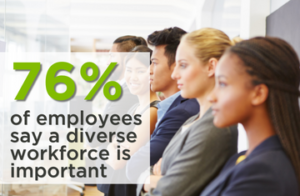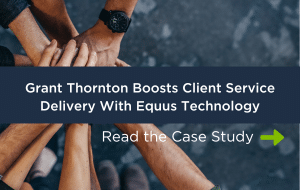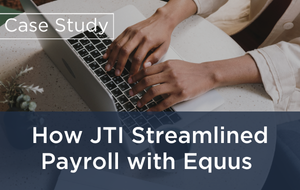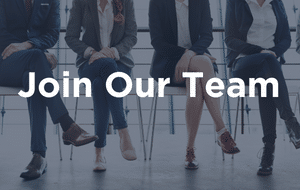
Ensuring diversity, equity and inclusion (DE&I) in your workforce has developed from being an issue at the fringes, to an essential responsibility for every organization.
Talent functions and HR have long monitored and made progress towards goals around hiring, retaining, and promoting talent from minority groups, or groups that have experienced historical discrimination. As well as the obvious benefit of completely opening the talent pool for consideration without bias limitations, another is the perpetual benefit of attracting more candidates in the first instance – as 76% of jobseekers and employees report that a diverse workforce is an important factor when evaluating companies and job offers.
The depth and intensity of the DE&I discussion today means that all parts of a business must reflect on how they can create a more just and equal work environment. So how can global mobility teams make a meaningful contribution to wider corporate ambitions here?
Global mobility holds relationships with an important and high-performing part of the workforce, and international postings are often steppingstones to leadership positions. It follows, then, that paying attention to this community will give some indication of how the overall business is faring in promoting DE&I.
To succeed, initiatives in this area need to be clear and measurable. Here are some areas for GM teams to consider in supporting diversity throughout the organisation.

Review and revise policies
If businesses want the leadership pipeline to include diverse talent, then global mobility policies need to be as encouraging of diversity as they can.
To begin with, GM teams should review their current mobility policies to update policy language and terms that have historically favoured certain kinds of people and were unconsciously biased towards others – such as single parents – thus generating a rather uniform mobile talent pool.
When offering up mobility packages to encourage as wide and as diverse a pool of candidates as possible, it makes sense to give employees choices about benefits or allowances, so they can pick whichever options best suit their personal circumstances. For example, a person with a same-sex partner with no children may prefer to use any financial assistance offered for traditional schooling fees to be used instead by their partner to learn the local language or for training to themselves enter the local job market.
Help match candidates to the ‘right’ assignment

Global mobility teams are experienced at spotting the signs or complicating factors that can lead to a failed assignment. These may be personal circumstances such as disabilities, single-parent family etc. or cultural or regulatory restrictions in the proposed host location – such as acceptance of same-sex partners. In this critical pre-move phase, Mobility’s voice needs to be trusted by the business to provide advice and guidance on whether the candidate is an appropriate fit, or what support in terms of benefits, allowances or vendor services are needed (often additional to regular policy provisions) to help ensure the chosen candidate is fully supported and able to settle in very quickly to their new host role. Ensuring assignments are appropriate to assignees’ circumstances and identities will keep employees satisfied and productive, and can promote retention.
Teams should pay attention to potentially delicate situations, such as sending a parent on a posting that will separate them from their family for a lengthy period. Likewise, posting LGBTIQA+ staff to a part of the Middle East where same-sex partnerships are illegal may raise complications relating to public conduct and living arrangements, for which the assignee is unprepared. Or a young graduate may be unprepared for the culture shock of living and working in a foreign country.
In these sorts of situations, GM teams should work closely with line managers, talent teams and HR functions to advise and steer people towards, or away from, assignments that will or won’t suit them. Assignments that go wrong not only alienate talent and hurt companies in terms of missed commercial opportunities, but they are also expensive to put right.

Skills to build trust
To support DE&I efforts and help businesses avoid sending employees on assignments with a high risk of failure, GM teams can give assignees access to more information about destination countries and cultures with the right global mobility tech. Honest and open conversations will also help. Vendors should be trusted and engaged to bring their insights and expertise to the table too as they will often have real experiences to share and solutions to offer. Some cities by the very nature of their topography are less well suited to individuals with mobility disabilities – simple planning can find equal opportunities elsewhere in the global organisation.
Addressing these issues may require recruiting new talent and skills into the GM team – or engaging the right vendors in their programme. The skill set needed to succeed here are around communication, emotional intelligence, empathy, and sensitivity.
Technology

Mobility technology systems can provide excellent analytical insights into the age, gender, pay, seniority, and marital status of an organisation’s mobile talent. This helps to understand the general makeup of employees within the mobility programmes – however, it is but a small fraction of what equal opportunities should stand for! A real challenge for DE&I initiatives though, is that, due to data privacy obligations, sensitive employee data concerning race, sexual orientation, religion etc. cannot be captured and tracked to understand just how diverse and inclusive your mobility talent programme really is.
But really, this shouldn’t matter! If as an organisation you build a truly open and inclusive culture and use global mobility management technology to make it easy for all employees to be mobile if the opportunity arises – then your talent will step in and be open to mobility and engender an agile workforce.
Stay tuned for part 2 of this blog, which will dive into policy and benefit DE&I best practices.
Click here to find out more about how Equus’ AssignmentPro can offer real solutions to organisations grappling with these challenges.













